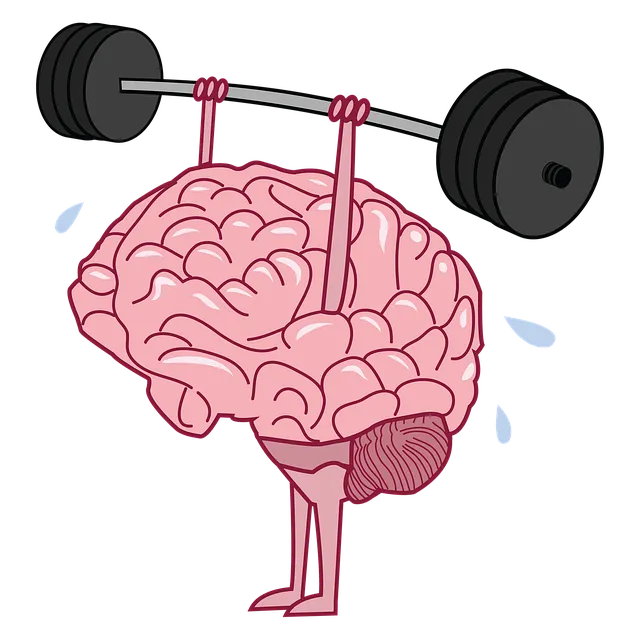Broomfield Kaiser Permanente's Crisis Intervention Teams (CITs) offer immediate, effective mental health crisis support, focusing on de-escalation and tailored care through training in cultural sensitivity and self-esteem improvement. This evidence-based, multifaceted approach enhances crisis management skills, reduces mental illness stigma, and improves services like the Broomfield Kaiser Permanente mental health phone number. The phone line provides confidential support, promotes healthcare provider well-being, and enhances patient care through prompt, compassionate intervention.
Crisis intervention teams (CITs) play a vital role in providing immediate support during mental health emergencies. This article explores the critical function of these teams and delves into the essential components of effective training programs. From understanding the impact of CITs to highlighting resources like the Broomfield Kaiser Permanente mental health phone number, we navigate strategies to enhance crisis response. Effective training equips professionals with the skills to de-escalate situations, reduce harm, and foster positive outcomes for individuals in crisis.
- Understanding Crisis Intervention Teams: Their Role and Impact
- Components of Effective Crisis Intervention Team Training
- Broomfield Kaiser Permanente Mental Health Phone Number: A Resource for Emergency Support
Understanding Crisis Intervention Teams: Their Role and Impact

Crisis Intervention Teams (CITs) are specialized groups within healthcare organizations, designed to provide immediate and effective support during mental health crises. These teams play a pivotal role in communities, offering a swift response to individuals experiencing severe emotional distress or psychotic episodes. With a focus on de-escalation, CIT members aim to safely guide patients towards recovery by offering advocacy, empathy, and evidence-based interventions.
In the spirit of enhancing mental healthcare services, many programs, such as those offered at Broomfield Kaiser Permanente, prioritize training in cultural sensitivity and self-esteem improvement. By fostering an environment that respects diverse backgrounds and promotes understanding, CITs can better cater to the unique needs of each patient. Additionally, these initiatives contribute to Mental Illness Stigma Reduction Efforts, ensuring individuals receive compassionate care without fear of judgment.
Components of Effective Crisis Intervention Team Training

Effective crisis intervention team (CIT) training programs are multifaceted and crucial for equipping mental health professionals with the skills needed to navigate challenging situations. These programs should encompass a comprehensive range of components, including theoretical knowledge, practical exercises, and role-playing scenarios. By integrating evidence-based practices, participants gain proficiency in identifying and de-escalating crises, ensuring safety for both individuals and the team.
Key elements include education on risk management planning, anxiety relief techniques, and stress reduction methods tailored to diverse populations. Training should also promote cultural competency, empathy, and effective communication strategies. Practicing these skills in realistic simulations allows professionals to build confidence and resilience when encountering real-life crises. Additionally, fostering a supportive learning environment encourages open discussions and peer learning, ultimately enhancing the overall effectiveness of CIT teams, as evidenced by positive outcomes at institutions like Broomfield Kaiser Permanente.
Broomfield Kaiser Permanente Mental Health Phone Number: A Resource for Emergency Support

In moments of crisis, having immediate access to expert support can make all the difference. The Broomfield Kaiser Permanente mental health phone number serves as a vital resource for individuals seeking emergency assistance. This dedicated line offers a confidential and accessible point of contact, providing crucial support to those experiencing mental health emergencies or emotional distress. Trained professionals on the other end are equipped with the knowledge and skills to offer immediate guidance, ensuring that callers receive the necessary care and resources promptly.
Beyond crisis intervention, this phone number plays a significant role in promoting burnout prevention strategies for healthcare providers. By offering a safe space to connect and share experiences, it fosters a sense of community among professionals who may be facing similar challenges. Moreover, it encourages mental wellness coaching programs development, enabling individuals to enhance their coping mechanisms and build resilience. This holistic approach not only supports the well-being of healthcare workers but also improves patient care by ensuring that those in need receive prompt, effective, and compassionate support.
Crisis intervention team training programs, encompassing essential components like role-specific skills and de-escalation techniques, play a pivotal role in enhancing community well-being. By fostering effective communication and ensuring swift support, these initiatives, such as the Broomfield Kaiser Permanente mental health phone number, can significantly mitigate crises and promote positive outcomes. Investing in comprehensive training equips teams to navigate complex situations, ultimately contributing to a safer and more resilient society.






